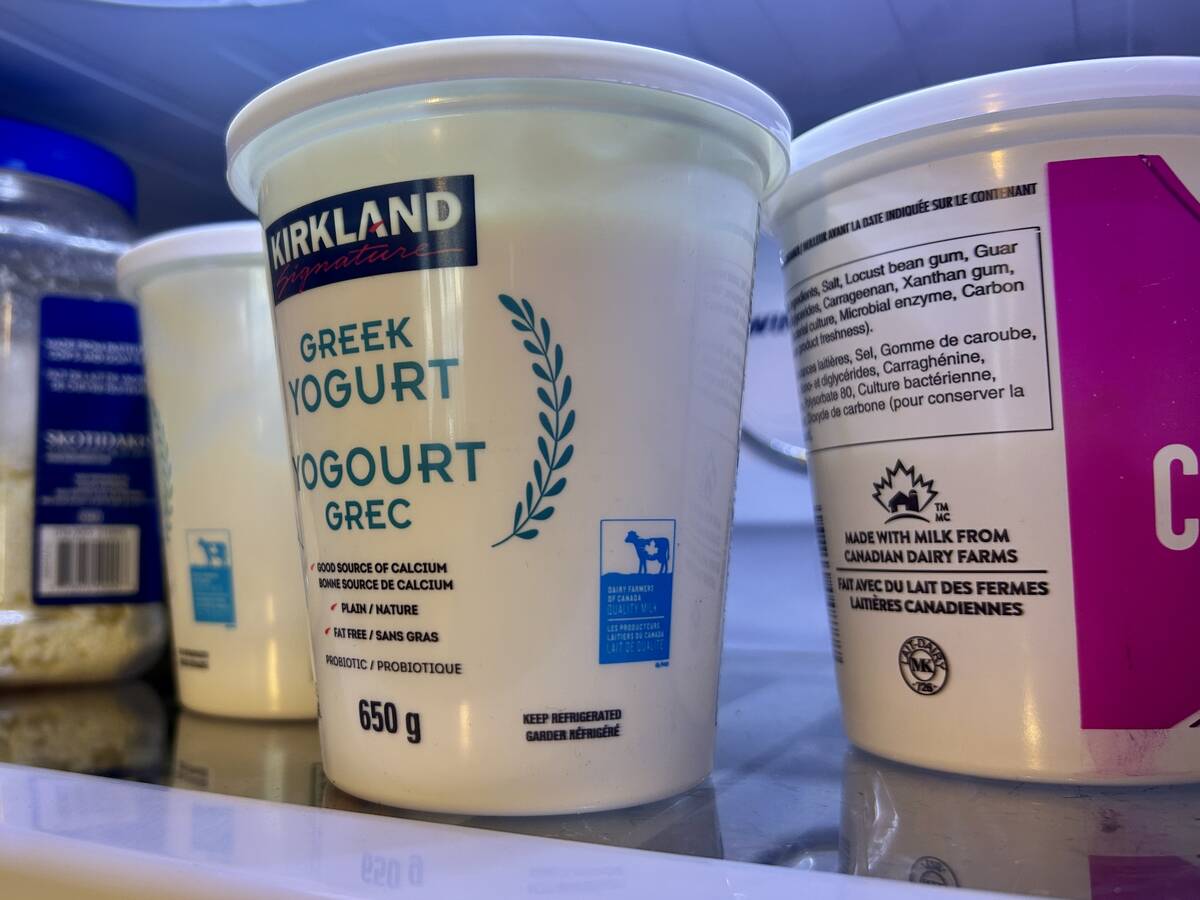Manitoba craft breweries and distilleries found new ways to reach their customers during this summer’s liquor strike.
It’s been a tough summer for many local alcoholic beverage manufacturers, who lost one of their most important distributors through what is traditionally one of the busier seasons when Manitoba Liquor & Lotteries workers went to the picket line Aug. 8.
Though sales were affected, several companies say they weathered the storm without significant hardships.
Read Also

Big changes ahead for dairy market
Dairy consumers put bigger eyes on protein, while CUSMA review looms large for Canada’s dairy farmers
“There were challenges,” said Chris Warwaruk, who owns Farmery Estate Brewery near Neepawa with his brothers.
“It’s just like COVID[-19]; there are large challenges on one side and there are new opportunities on the other side.”
Why it matters: Manitoba Liquor Marts were closed through the heart of August, but craft beverage companies found some surprising silver linings.
Farmery has become a big name in western Manitoba, with the brewery itself touted as an agri-tourism destination where the brothers grow the barley and hops that go into their beer.
While Warwaruk said sales through Liquor Marts decreased during the strike, his company hasn’t seen significantly lower sales overall.
“Sales in liquor stores were down because they were closed, but the consumer is resourceful. It’s summertime, so people are going to be buying beer and coolers,” he said, noting those customers found other ways to get products into their fridge.
For Warwaruk, sales shifted from the Liquor Mart to beer vendors and Farmery had more walk-in traffic in its own retail outlets.

But Farmery is one of the larger craft breweries in the province, with the benefit of its own storefronts, and the beer vendors that picked up the slack for sales during the strike are a well-known alternative for buying that type of beverage.
For niche market producers like BeeBoyzz Meadery, it’s a different story.
“We have a forgotten beverage; we sell mead,” said Kon Paseschnikoff. “So we have spent the last three or four years just trying to educate people on our product.”
He said the liquor commission hasn’t been particularly helpful in that department.
“We’ve had a hard time getting them to support local,” he said, so the company has pushed its product through alternative channels right from the start. The strike had little effect on sales.
BeeBoyzz Meadery is part of the evolution of a generational beekeeping operation out of Oak Bluff. It bills itself as “Manitoba’s first and only bee-to-bottle meadery.”
In addition to meads, it sells honey wine, teas and various types of honey.
“It shifted the other way,” said Paseschnikoff of the strike. “It’s actually become positive for us, and we have a lot of people coming to our storefronts here and buying right from us.”
He has been showcasing his products at festivals and farmers markets across the province, where the company has capitalized on customers looking for alternatives to buy booze.
“People are really supporting local, and they’re learning local and that’s the biggest thing,” he said.
On the hard liquor side, Manitoba’s Capital K Distillery butts up against similar challenges in terms of educating consumers about niche products. But unlike BeeBoyzz, it said Manitoba Liquor & Lotteries has been a resource.
“In general, the MLCC is actually doing their best to try to support local companies or local producers,” said Capital K’s master distiller, Jason Kang.
His challenge is that craft distilleries are still somewhat unfamiliar to people.
Capital K is a Winnipeg-based operation that prides itself on using Manitoba grain for its products. It produces whisky, gin, rum and vodka and markets itself as Manitoba’s first craft distillery.
“Everybody knows craft beer. Almost every local restaurant or bar carries some sort of local beer,” said Kang.

He would love to see the same acceptance for spirits, but the visibility of craft distilleries (there are only two in the province) is a challenge. Kang says the strike may have helped turn people onto the idea.
His company has also been touring farmers markets with products, and there has been an uptick in sales at the storefront in Winnipeg.
“We did notice a few more customers walk in because they couldn’t find an open liquor store,” said Kang.
That might pay off in the long run through increased awareness of their product, but overall, those sales haven’t fully replaced those received through Liquor Marts.
“We probably still have a loss in sales compared to when the liquor store was fully open,” Kang said.
Standing out
Warwaruk suggested one reason sales have gone up for some beverages might be because those products don’t face the same on-the-shelf competition in beer vendors as they did in the Crown corporation-run liquor stores.
“The MLCC is the sole distributor of a lot of import products that we compete directly with,” he said.
He pointed to two rival products specifically: a Danish strong beer called Faxe and Mott’s Clamato Caesars.

“We make a strong eight per cent beer, and if Faxe isn’t on the shelf, then [customers are] actually getting exposed to a local product,” he said.
Farmery also makes a beer-based Caesar that would normally compete with Mott’s.
“This is good for us, because not having to go toe-to-toe marketing-wise with a big international company like that has given us the opportunity to actually get in front of and exposed to a local audience,” Warwaruk said.
















